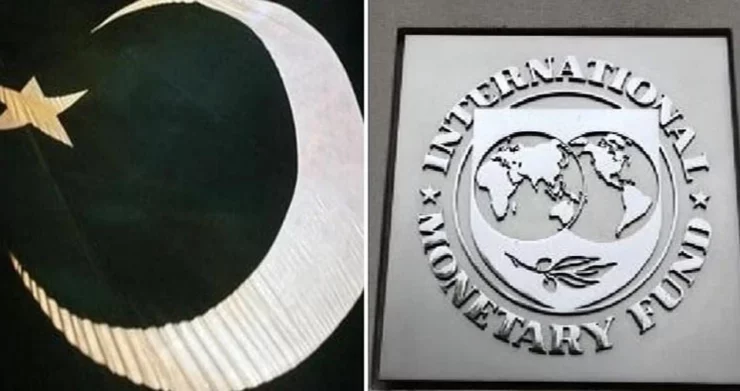
The International Monetary Fund (IMF) and Pakistan reached a staff-level agreement in March 2024 for the release of the remaining $1.1 billion out of the total $3 billion bailout package. The 9-month bailout package was sought by the Pakistani government last year to avert the sovereign debt. The country has been dependent on IMF loans for decades to fuel its staggering economy. This was Pakistan’s 24th engagement with the Washington-based lender, earning a reputation as the IMF’s most frequent and the 4th largest customer. Previously, all the IMF programmes were concluded before their completion due to strict conditions by the lender. Despite recurrent bailout packages from the IMF, the country is unable to obliterate its economic woes.
The newly elected government in Pakistan has once again decided to woo the IMF for another bailout package to avoid the imminent sovereign debt. Pakistan’s incumbent Finance Minister Muhammad Aurangzeb has hinted recently that this time the government is mulling starting discussions with the lender for long long-term and bigger bailout package. Moreover, the government of Pakistan is also seeking the approval of additional climate financing from the monetary body. The nation has implemented strenuous reforms to comply with the conditions of the IMF. However, in a recent briefing, Kristalina Georgiva, MD IMF, hinted at the requirement of new reforms in Pakistan for the approval of a new program. While discussing the chances of a potential follow-up program by Pakistan she said, “There are very important issues to be solved in Pakistan: the tax base, how the richer part of society contributes to the economy, the way public spending is being directed and of course, creating … a more transparent environment.” She further added, “The country is turning to the fund for potentially having a follow-up programme and there is a commitment to continue on this path.” This shows that the IMF still wants the country to take further reforms.
This time, these reforms are expected to impact the richer strata of society. However, increasing the tax on the industrialist and business class of the society indirectly hurts the lower class of the country. In the past, whenever the Pakistani government increased taxes on the Industrialist or business class, the inflation increased in the country and the purchasing of the lower class decreased significantly. IMF’s new proposed reforms will also have a similar impact this time as well. Therefore, directly or indirectly, Pakistan’s lower and middle class suffers time and again due to the incompetence of their government to strengthen their economy. Increasing oil and gas prices due to surging instability in the Middle East will further aggravate difficulties for the common people of the country.
Recurrent attempts of the Pakistan government to seek bailout packages from the IMF delineate that the economy of the country is still in shambles and the government is unable to address the underlying causes behind the struggling economy of the country. Some pro-West people in the country try to propagate a false narrative that the IMF conditions can lead the country towards economic growth. However, in actuality, the conditions of the monetary body are designed only for temporary stabilization of the economy. Zafar Masud, president, and CEO of the Bank of Punjab, argues, “It’s given that a sizable, extended IMF program is imperative for Pakistan. We have to appreciate, however, that the IMF prescriptions are [always] designed for macroeconomic stabilization, not for growth. Therefore, there will be economic pain and anemic growth in the medium term.” Nonetheless, the government officials seem oblivion to this fact and repeatedly look towards the IMF for supporting the staggering economy of the country.
In the past, the country has faced numerous geopolitical predicaments due to the IMF programmes. The US influence over the IMF has detrimental impacts on the foreign policy of the country. Pakistan’s dependence on the IMF is one of the major impediments to the country’s attempt to follow an independent foreign policy. Under the previous government, Pakistan adopted a policy shift from geopolitics to geo-economics. However, the nation is still struggling to follow this policy. People and the officials of the country see Russia and China as more viable friends. But the West, especially the US, coerces it to fully align with the Eastern bloc. The US has been hostile to the China-Pakistan Economic Corridor (CPEC) since the inception of the project. IMF allegedly pressured Pakistan to slow down the pace of construction of the CPEC. Moreover, in March 2024, the Pakistan government silently assured the IMF officials that it would not allocate additional budget to settle the dues of the Chinese power plants.
For a stable and growing economy, Pakistani officials need to take appropriate steps by addressing the actual issues. Pakistan’s government’s import-intensive policies are one of the major causes behind the country’s increasing current account deficit. Moreover, the government also needs to take structural reforms to bolster the country’s economy. Furthermore, the accountability of government officials and bureaucrats is also imperative for strengthening the economy and avoiding further deterioration of Pakistan’s economic plight. Terrorism and political instability also pose a great threat to the economy of the country. All the political parties of the country need to sign a charter of economy to ensure that their political differences will not affect the economy of the country. Otherwise, Pakistan’s dependence on Western institutions will keep increasing, which will be detrimental to the political future of the country.
Taut Bataut – is a researcher and writer that publishes on South Asian geopolitics, exclusively for the online magazine “New Eastern Outlook”.